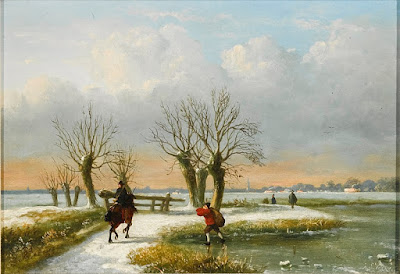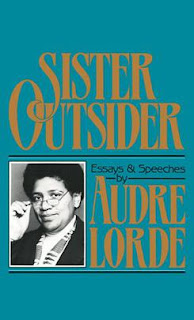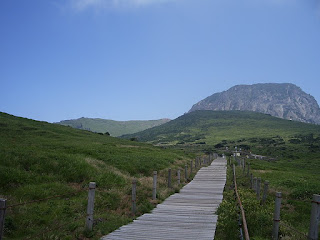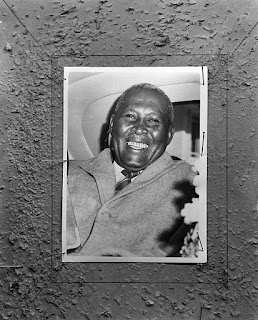Official languages:
- Korean (Pyojuneo)
- Korean Sign Language
Capital City: Seoul
Surface Area: 100,363 km2 (smaller than North Korea, larger than Taiwan)
Currency: Korean Republic won
Driving side: right
Main trading partners: China, United States, Vietnam, Taiwan, Japan
Sources: "South Korea" [Wikipedia] and "Economy of South Korea" [Ibid]
***
As a twenty-something I spent hours watching the entirety of the Korean romance drama television series Goong (Princess Hours), and one of my siblings was a fan of Coffee Prince. So the South Korean cultural output I've been exposed to was generally cheerful.
My reading experience of South Korean books, during my literary journey around the world, has turned out by chance to be rather strikingly grim in contrast.
*
One Spoon on This Earth, I've already mentioned in this blog before.
In this novel (published in 1999 by a Korean writer who made it part-autobiographical), a man who was born on Jeju Island in the mid-20th century mirrors his horrific experiences of growing up in the shadow of World War II. Starvation, house burnings, massacres, and more gruesome incidents crowd the pages, in chapters that act as vignettes.
The vignettes 'photograph' a bookish, introverted young boy who survives into teenagerhood despite the violence in his neighbourhood, the starvation and disease, that threaten him and his big multigenerational family. He himself is sickly, less socially adept than some of his peers, and haunted by his resentful relationship with his often-absent father.
At the same time he loves his natural environment, except where mountain slopes are the haunted field of a massacre or the oceanside reminds him of a drowned friend, and a few of his experiences with childhood playmates.
The author, Hyun Ki-young, published a story "Aunt Suni" in the 1970s, which was also about the Jeju massacre. It was so politically fraught even decades after the events it described that, according to his Wikipedia biography, "shortly after its release in 1978, Hyun was arrested and tortured for three days by the South Korean authorities"
 |
"Jeju citizens awaiting execution in May 1948."
Public domain (South Korean law), via Wikipedia |
One shock to a North American or European reader may be that the 'democratization' of South Korea post-World-War-II was not the squeaky clean transition one might have learned of in a history class: Syngman Rhee was a deadly leader and it was not only North Korean leaders who cracked down on civilians in revenge for political and armed opposition in the post-war period.
Two passages I copied into my notes embody the author's endurance and deadpan humour:
Since I survived a politically dangerous and volatile period when living and dying was purely determined by chance, perhaps my fate isn’t so bad after all.
and
Entering an elementary school meant having a new set of family. In other words, it was like having an even stricter father and even more selfish brothers and sisters.
***
Kim Jiyoung, Born 1982 takes up the early 2000s. It has more of a hardened dystopian quality, although the events it tells are of ordinary life and not wild flights of fantasy or brutal wartime events.
The book was a bestseller, published in Korea in 2016 and a hit not just there but also in Japan, Taiwan and other countries. But there was also a wave of antagonism in reaction to it. Perhaps it hit a nerve because statistically South Korea is surprisingly unequal in its treatment of genders. Over 90% of the population mention in polls that they want a power balance between the sexes, so it is not necessarily intentional.
An interview from 2020 with the American media outlet National Public Radio summarizes how and why the author chose her theme:
Author Cho Nam-Joo wrote the book inside of three months. She says she never expected it to take off — and she didn't even know if she could get a book deal. "I just wanted this book to be in the bookshelves, in bookstores and the library as evidence of how women in this era, the 2010s, lived, thought and made efforts," Cho says through an interpreter.
In the book, Kim Jiyoung's life looks regular; she is an everywoman, married with a child, family around her, cooking and tending the household. But she begins to slip into irregular outbursts of apparent psychosis.
 |
Original cover of Kim Jiyoung, Born 1982
Minumsa publishing house
via Wikipedia |
Cho Nam-Joo sketches an unhealthy reality for Korean women, finding madness that underlies not her titular character's own psyche but rather her titular character's world. ("[S]he wanted women to know they're not alone," says NPR)..
A pattern of (semi-)benevolent and at rare times outright malevolent repression underlies her everyday life. It gives rise to malaise: Kim Jiyoung is not the only one who notices that something is wrong. But it simmers away insidiously instead of looking like an outright cause for reform or outrage.
Sexism makes Kim Jiyoung's family life in childhood tilted in favour of some siblings, her academic environment limited, her career doomed, a walk in the streets fraught with discomfort, and her marriage annihilating.
When she does express unhappiness about the invisible limits that hedge her every day, she is met with 'gaslighting' and her protest sinks away into oblivion. People who don't bear the brunt of the system, or have decided not to fight, are too comfortable with the way things are. The echo of George Orwell's year 1984 in the title is surely not unintentional.
(I read the book a while ago, so please excuse any inaccuracies.)
So in the end Kim Jiyoung, despite her middle-class income, her education, and the lack of crime or violence in her environment, has very few genuine means.
Kim Jiyoung, Born 1982 tells part of the truth of being a woman as I haven't read anyone else tell it — certainly not only relevant to South Korea. Thank goodness, it is only a part of the truth.
"Gender inequality in South Korea" [Wikipedia]
"Hoju" [Wikipedia]
"Kim Jiyoung, Born 1982" [Goodreads]
"Kim Ji-young, Born 1982: Feminist film reignites tensions in South Korea" [BBC News Korean], by Hyung Eun Kim (October 23, 2019)
"South Korean Bestseller 'Kim Jiyoung, Born 1982' Gives Public Voice To Private Pain" [National Public Radio], by Elise Hu, with Se Eun Gong, Dasl Yoon, and Petra Mayer. (April 19, 2020)
***
Lastly, a Canadian missionary, educator and translator, James Scarth Gale, published an English-language edition of Korean fairy tales by Im Pang and Yi Yuk, in 1913. The Koreans' tales are set in a time frame roughly equivalent to the Early Medieval period through the European Renaissance and Baroque eras.
Each tale tells of old times and practices, in a landscape of animals, hermits with incredible powers, mysterious wanderers, aristocrats, goblins, mountains, and wilder regions of the afterlife.
The tales also sketch a great bureaucracy, Confucian religion, and imperial armies that fictionally adumbrate the bygone empires. The plots do not insist that life must be fair; but the characters in them sometimes find that 'what comes around, goes around.'
*
The Old Woman Who Became a Goblin
There was a Confucian scholar once who lived in the southern part of Seoul. It is said that he went out for a walk one day while his wife remained alone at home.
When he was absent there came by begging an old woman who looked like a Buddhist priestess, for while very old her face was not wrinkled. The scholar's wife asked her if she knew how to sew. She said she did, and so the wife made this proposition, "If you will stay and work for me I'll give you your breakfast and your supper, and you'll not have to beg anywhere; will you agree?"
She replied, "Oh, thank you so much, I'll be delighted."
The scholar's wife, well satisfied with her bargain, took her in and set her to picking cotton, and making and spinning thread. In one day she did more than eight ordinary women, and yet had, seemingly, plenty of time to spare. The wife, delighted above measure, treated her to a great feast. After five or six days, however, the feeling of delight and the desire to treat her liberally and well wore off somewhat, so that the old woman grew angry and said "I am tired of living alone, and so I want your husband for my partner." This being refused, she went off in a rage, but came back in a little accompanied by a decrepit old man who looked like a Buddhist beggar.
These two came boldly into the room and took possession, cleared out the things that were in the ancient tablet-box on the wall-shelf, and both disappeared into it, so that they were not seen at all, but only their voices heard. According to the whim that took them they now ordered eatables and other things. When the scholar's wife failed in the least particular to please them, they sent plague and sickness after her, so that her children fell sick and died. Relatives on hearing of this came to see, but they also caught the plague, fell ill and died. Little by little no one dared come near the place, and it became known at last that the wife was held as a prisoner by these two goblin creatures. For a time smoke was seen by the townsfolk coming out of the chimney daily, and they knew that the wife still lived, but after five or six days the smoke ceased, and they knew then that the woman's end had come. No one dared even to make inquiry.
Translated from a tale by Im Bang, or Pang, (1640-~1722), son of a provincial governor, scholar.
Im Pang rose in the political ranks, but in 1721 (already an elderly man) he fell from grace. He was banished a year later when he was involved in 'disturbances.' He died in exile.
*
***
Pang, Im and Yi Ryuk. Korean Folk Tales: Imps, Ghosts and Fairies, James Scarth Gale, transl. (London: J.M. Dent, 1913) via Archive.org







_(6505647963).jpg)


























